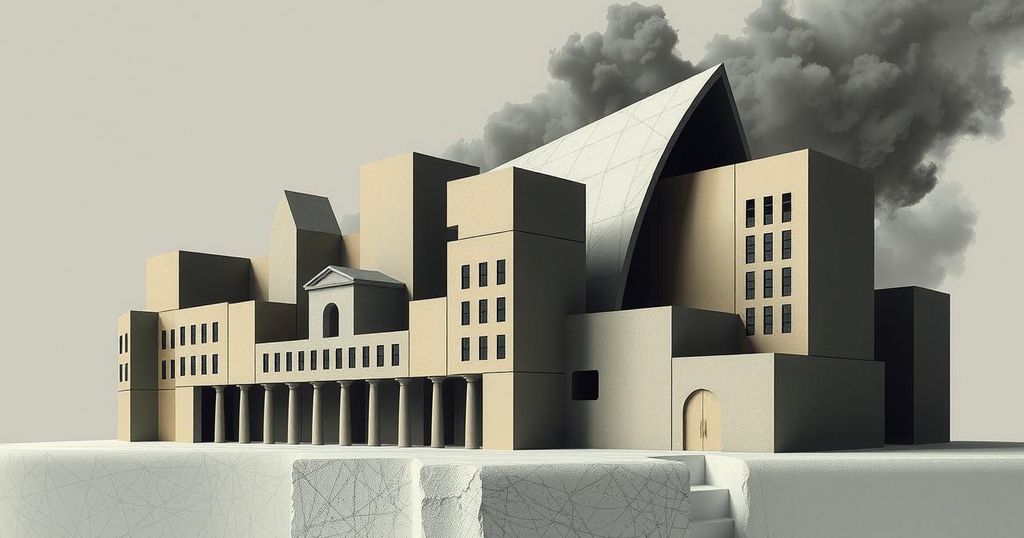Guinea-Bissau faces an institutional crisis as President Umaro Sissoco Embaló refuses to resign following the expiry of his term on February 28, 2025. Domingos Simões Pereira, leader of the PAIGC, demands new elections within 90 days and the urgent reconvening of parliament. Embaló has ruled by decree for over a year and dismissed recent mediation attempts by ECOWAS, contributing to public frustration and international concerns regarding governance.
Guinea-Bissau is currently experiencing an institutional crisis as President Umaro Sissoco Embaló continues to hold office despite the expiration of his five-year term on February 28, 2025. Domingos Simões Pereira, leader of the African Party for the Independence of Guinea and Cape Verde (PAIGC), contends that Embaló must relinquish his position immediately to allow for the formation of a new government.
Pereira, whose coalition secured an absolute majority in the 2023 parliamentary elections, demands new presidential and parliamentary elections within 90 days, rather than the November 30 date proposed by Embaló. He emphasizes that “the constitution requires this” and insists that the parliament, dissolved by Embaló in December 2023, should reconvene to facilitate these processes.
Embaló has effectively ruled Guinea-Bissau by decree for over a year, appearing determined to thwart Pereira’s political ascendance while sidestepping necessary appointments for electoral governance. The opposition faces growing frustration, particularly as the country grapples with severe economic issues. Meanwhile, Interior Minister Botche Candé has threatened to quell any protests that may emerge, while public apathy seems to prevent widespread dissent.
There is, however, some protest activity among expatriate communities, notably in Lisbon, where demonstrators called for respect for the constitution and an end to Embaló’s presidency. They expressed their grievances by chanting, “Sissoco, out! Long live democracy!” These sentiments reflect a broader disillusionment with the current regime.
In light of recent developments, such as Embaló’s visit to Russia, concerns about his commitment to domestic issues have been exacerbated. His extensive travel and engagement with international leaders, particularly Vladimir Putin, has prompted criticism for neglecting the pressing needs of the Guinean populace.
Efforts by ECOWAS to mediate the political crisis have been ineffective, as Embaló dismissed the mediation team shortly after it arrived. This scenario has led to a perception of ECOWAS’ weakened capacity to enforce governance norms within member states.
Overall, Guinea-Bissau remains in a precarious situation, with a critical need for constitutional adherence and governance restoration to foster stability within the nation.
In summary, Guinea-Bissau is experiencing a significant political crisis characterized by Umaro Sissoco Embaló’s refusal to vacate the presidency despite the expiration of his term. Domingos Simões Pereira advocates for immediate elections and the reconvening of parliament to restore democratic governance. Amidst an apathetic public and ineffective mediation from ECOWAS, the nation’s future remains uncertain as calls for constitutional respect and political accountability persist.
Original Source: www.dw.com




